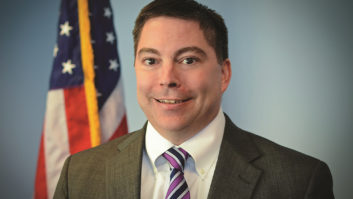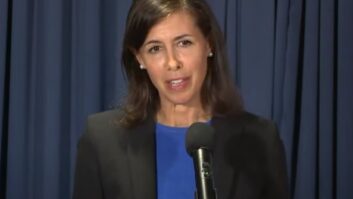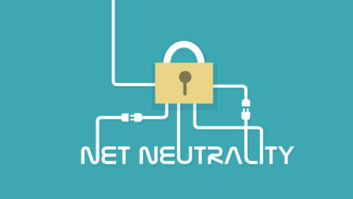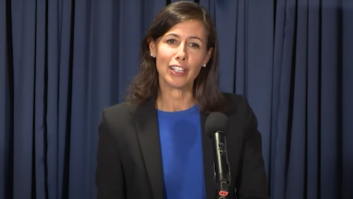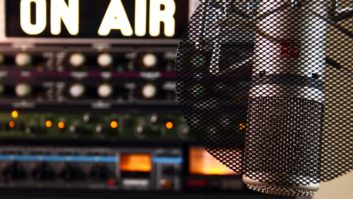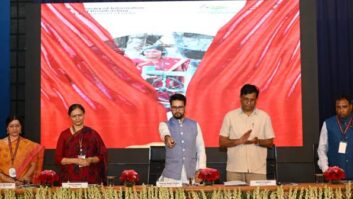
The author is membership program director of the National Federation of Community Broadcasters. NFCB commentaries are featured regularly at radioworld.com.
The Federal Communications Commission is embroiled in debates over a host of rules changes. None is more controversial than net neutrality. The ferocious exchanges have spurred alleged hacks and a television feud. But why should community media care about net neutrality?
Net neutrality is a stylized name for the principle of network neutrality, or the idea that Internet traffic should be treated equally, regardless of provider. Internet traffic takes many forms, of course, including email, photos, websites, video files, audio files, general office files and streaming audio and video. Such a notion, though, has led to discord among companies who lay the cables and provide the backbone for online access. Is some nonemergency, nonbusiness traffic more important than others? If you pay for an ISDN, should you expect priority? Who pays for unbuffered Netflix streams? The quandaries are seemingly endless.
The commission under ex-Chair Tom Wheeler opted to classify broadband access as a telecommunications service rather than one afforded special access privileges and treatment, thereby upholding net neutrality. The United States Telecom Association sued, arguing the FCC hurts its business with such regulations. Although USTA lost in a federal appeals court last year, the telecom industry says Supreme Court consideration is an option.
Watchdog groups argue deregulation initiatives by the FCC’s new Chair Ajit Pai, who promised to take on many rules, ultimately harm the nation. Free Press says, “Without Net Neutrality, cable and phone companies could carve the internet into fast and slow lanes. An ISP could slow down its competitors’ content or block political opinions it disagreed with. ISPs could charge extra fees to the few content companies that could afford to pay for preferential treatment — relegating everyone else to a slower tier of service. This would destroy the open internet.”
Community media — whether it’s a public, educational or government television stations, low-power FM, community radio or podcasters — should be adding their voices to the net neutrality conversation for several reasons.
First and foremost, your audiences are consuming more on the web, including your content.
In fact, audiences across age, race, sex and class are moving online at a remarkably fast clip. Roughly three-quarters of Americans, Pew Research says, own a smartphone and have broadband internet access at home. The older adults many assume to be technology averse are adopting tools at unprecedented rates. The digital divide, while persistent, is shrinking for African-Americans and especially Latinos. Rural communities face major challenges in infrastructure. However, the internet and streaming content is the media world to which people have increasingly adapted.
Noncommercial media has taken notice of the shift. NPR is most notable in the online content space. Its programs, including the digital exclusive “Up First,” draw big podcast audiences. Its base has ballooned, thanks to digital. Community radio has followed suit, and is in a delicate place should net neutrality change.
Consider rural community stations like KFAI(FM), WERU(FM) and others that podcast, as well as the areas that they serve. They’re typical of a dynamic ecosystem of community media podcasting NFCB has previously profiled. Health-related information, history and local culture are shared through such podcasts. Such are essential civic communications.
Then there’s the subject of streaming. I deal with more than 200 different community radio stations nationwide. On a regular basis, managers and volunteers say they notice a listener proclivity they’d not caught until recently. No longer is Jane and John Tuner using alarm clocks or home stereos as they did 10 or 20 years ago. Today, stations are seeing fans in their own towns just pull the station up on their smartphones, or link to their cars via Bluetooth. Whole resource sets, such as Radio Free America, have flowered to help community radio to be more online conversant. Younger and older audiences now enjoy the station not on the old Bose, but on the new iPhone and Galaxy. As such, streaming has become a very big deal.
Should bad policy pass, though, there may not even be an audience online to enjoy what community media is doing anyway.
You don’t have to hunt for nightmare scenarios. Mashable, not a policy wonk by any means but typical of opinion here, suggests altering net neutrality could mean fundamental changes to how users are accustomed to enjoying digital streaming and downloads. It might also mean content providers like community media could bear more costs for the menu of services it is used to having, and sharing, at no extra charge.
KDNK(FM) Station Manager Gavin Dahl is among community radio leaders uneasy about the latest commission moves. “Corporate media controlling network access for consumers and also offering content of their own can’t be trusted to treat all content in a neutral way. That’s why the FCC protecting all of us was so important. I was really impressed with former chair Tom Wheeler. He seemed truly committed to the public interest. He listened to the public outcry,” Dahl wrote in an email when asked about net neutrality. “Chair Pai says he is a friend to broadcasters. My friends think allowing powerful conglomerates to pick winners and losers on the web is un-American. No friend of radio would eliminate network neutrality to please the big phone and cable companies.”
So much of what net neutrality may end up as is speculative. In a Medium post, Chair Pai decried what he felt was sensationalism by the media and reiterated his determination to close the communications gap in the country. One thing in the net neutrality dialog is certain, however. Community media has role to play in talking about this issue, and for speaking up in support of their respective cities and towns.





